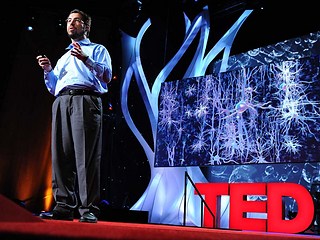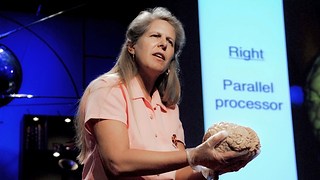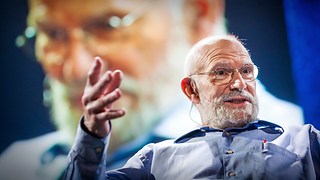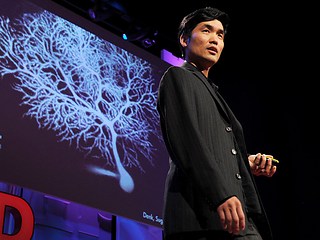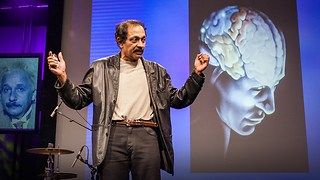Activities
Deepen your understanding of Mapping and Manipulating the Brain with these carefully crafted educational exercises that let you get the most out of this TED Studies subject.
Activity 1
In her 2012 TEDTalk "Beware neuro-bunk," Molly Crockett provides a clear-eyed appraisal of how marketers, the media, educators, policy makers and others have often overstated (or in some cases, skilfully manipulated) neuroscientific research. Crockett shows how this 'data' can be used to drive changes in social policy and market a raft of allegedly brain-boosting products and services. Other good sources on the same subject include Gary Marcus's December 2012 New Yorker article "Neuroscience Fiction" and Geoffrey Aguirre's 2009 talk from the University of Pennsylvania's Seminar on Neuroscience and Society, "What lurks behind the brain image: Differentiating neuroscience from neuro-bunk."
Crockett's case studies highlight some common errors (or, as she calls them, "classic moves") in understanding and applying scientific research data. Keeping these in mind, do as Crockett suggests: evaluate a product, service, marketing campaign or policy that claims to be based on neuroscience. You might choose something mentioned in one of the previous modules (see in particular the assignment questions for Modules 6 and 7), scan the headlines, search the Internet (try "brain boost" and see what you find!), or simply stroll the aisles of a local store.
From what you can tell, are the claims based on good science? Which of the "classic moves," if any, do you see in evidence? How did your engagement with the TEDTalks in the previous modules help you evaluate the claims? Write a letter to the responsible company/organization/individual describing your conclusions, and/or post a review online. When you think about how other scientific research studies are used to sell products, services or ideas (e.g., related to heart health, weight loss, better sleep, etc.) do the neuroscience examples seem somehow different, or is it more of the same?
Activity 2
Several of the TEDTalks in Mapping and Manipulating the Brain touch on important ethical issues. What common themes surfaced as you explored the ethical implications of the advances mentioned in the talks? Are these concerns specific to neuroethics, or do you think they also have broader relevance in bioethics? Over the past decade, interest in neuroethics has grown substantially: witness the establishment of the International Neuroethics Society, the publication of several seminal texts like Judy Illes's Neuroethics (2005), and the founding of neuroethics programs at Oxford, UPenn, Stanford, Emory, Vanderbilt, the University of British Columbia and elsewhere.
Explore neuroethics more deeply via one or more of the following sources:
- University of Pennsylvania's Center for Cognitive Neuroscience: Graduate course in neuroethics [iTunesU collection].
- The Dana Foundation: Neuroethics
- Neuroethics at the Core: The Blog of the National Core for Neuroethics, University of British Columbia
Activity 3
In April 2013 (the same month as this course was published), President Obama announced a new federal program, the Brain Research through Advancing Innovative Neurotechnologies (BRAIN) Initiative. Beginning in 2014, the National Institutes of Health, the National Science Foundation, and the Defense Advanced Research Projects Agency will provide $100 million in research funding, with partner organizations like the Howard Hughes Medical Institute and the Salk Institute for Biological Studies also contributing research dollars. Obama described BRAIN as "the next great American project" with a goal of accelerating the development and application of new technologies in neuroscience.
Learn more about BRAIN and the types of projects it might support. How does it relate to the challenges and technologies described by the TED speakers? How does it differ from other government-funded neuroscience research programs (e.g., the Human Connectome Project)?
Follow BRAIN as it develops to see whether it advances any of the technologies mentioned in the TEDTalks, helps treat any of the conditions mentioned by the speakers (e.g., chronic pain, blindness, stroke), or if BRAIN begins to suggest answers to any of the really big questions posed by the TED speakers and in the summary essay.
Relevant talks

